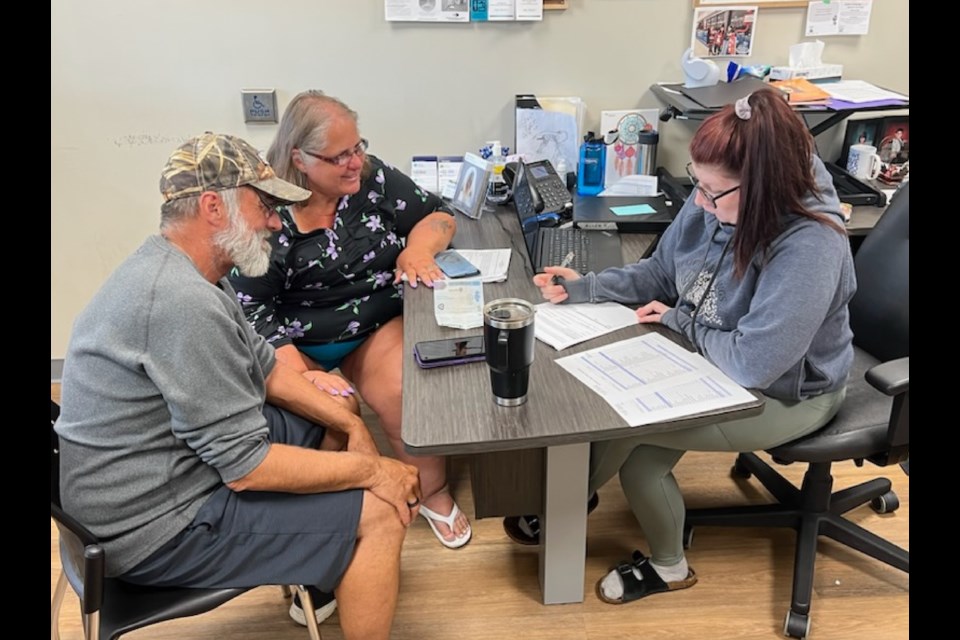This is the 11th in a series of columns written by staff from the Lighthouse to help the community better understand people experiencing homelessness and those who support them. This column will appear every other Monday.
What are your assumptions about people who are unhoused? Do the following thoughts ever cross your mind?
- Why don’t they just get a job so they can afford rent?
- They’re wasting their money on drugs and alcohol; that’s why they can’t afford housing.
- It’s probably their fault that they lost their housing anyway.
- They’re likely dangerous. Why would we help someone like that?
If you’re honest, chances are you’ve thought something along those lines at least once. It’s easy to think everyone who experiences homelessness has a similar story. It’s a slippery slope from there to believing someone’s living situation is their identity and that because of the fact they’re unhoused, they’re somehow worth less than those of us who have a home.
If you’re someone who feels this way, I want to challenge your thinking. People who access the Lighthouse’s services are not all the same. Each person has a unique story. Each person has value, worth and dignity. And each person deserves to have hope, a home and a future.
If the reasons listed above are not necessarily true about someone who is experiencing homelessness, what causes their homelessness?
Affordability plays a significant role in housing accessibility. For people who have a fixed income like the Canadian Pension Plan, Ontario Works or Ontario Disability Support Program (ODSP), it is almost impossible to afford housing. For a single individual on Ontario Works, their total income is $733 per month. ODSP for a single individual is a maximum income of $1,228 per month. Even when working a full-time job, housing is expensive.
Most rooms advertised in Orillia are priced at $800 or more per month. This is often out of an individual’s budget or leaves little on which to live once accommodation is paid for. Add in the fact some people need accessible housing or have difficulty sharing space with others, and it becomes even more challenging to find housing.
A common reason individuals become unhoused is relationship breakdown. For people who are precariously housed, a disagreement with a family member can be catastrophic for their housing. If they’re asked to leave, they often don’t have anywhere else to go and have to turn to an emergency shelter.
Others seek emergency shelter at the Lighthouse because the building where they were renting has sold or a landlord is renovating the building and they are required to leave. Once renovated, they cannot afford the increased rent of the same unit. Then, finding a new place to rent at a higher cost is challenging, and sometimes impossible.
Overall, the reasons people become or stay unhoused are incredibly complex. Here are some samples of answers to the questions from above.
- Why don’t they just get a job so they can afford rent?
Some people are unable to work. Others who we might say should just “get a job” are extremely exhausted from being in survival mode for so long. They don’t have clothes to wear, and they don’t have a home. It’s difficult to maintain employment when you don’t have anywhere to live.
- They’re wasting their money on drugs and alcohol; that’s why they can’t afford housing.
Trauma is typically the root of addictions. Some people grow up in a household of addictions and do not know how to live otherwise. Getting housed with supports to then work on addictions and mental health is the only way. Imagine trying to stop a deeply rooted addiction while living on the street.
- It’s probably their fault that they lost their housing anyway.
Growing up, no one ever said, “I want to be homeless when I grow up.” No one.
- They’re likely dangerous. Why would we help someone like that?
What about the 73-year-old woman in a wheelchair, the youth who left a difficult, unsafe family situation, the man whose wife kicked him out, who has no friends or family but is able to keep his job because he’s in a shelter? Yes, there are those who can be dangerous. Due to mental health challenges and addictions, some people can be unpredictable, but that is certainly not the majority.
The next time you come across a person who is unhoused and experiencing homelessness, remember they are a person who has value and worth, who deserves dignity.
For more information about the Lighthouse, contact Linda Goodall, executive director, at [email protected].
